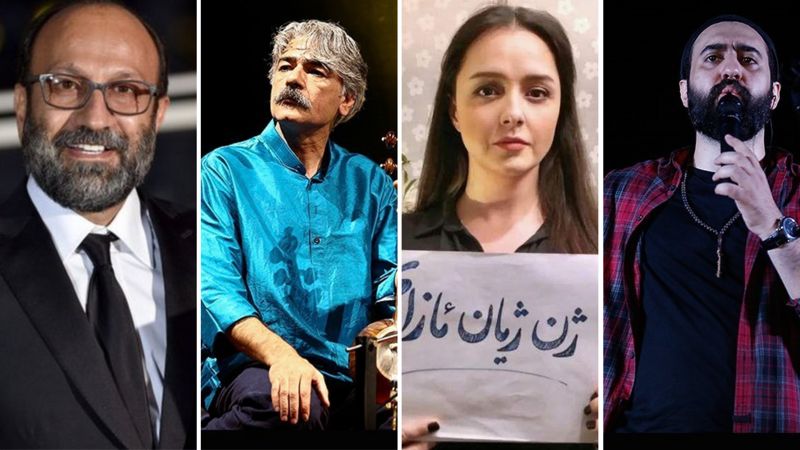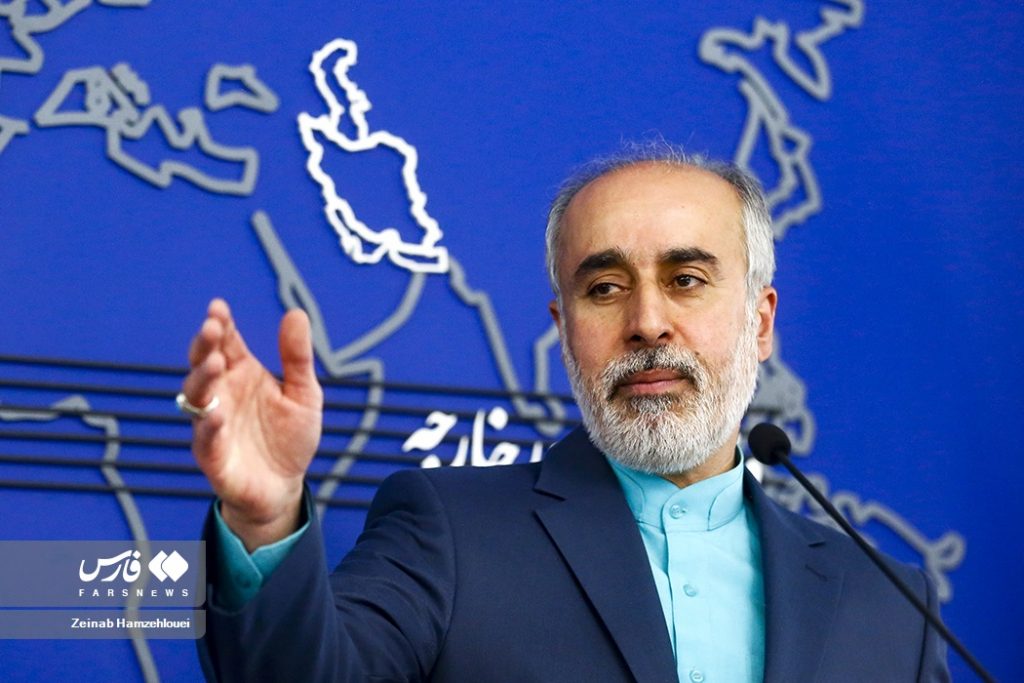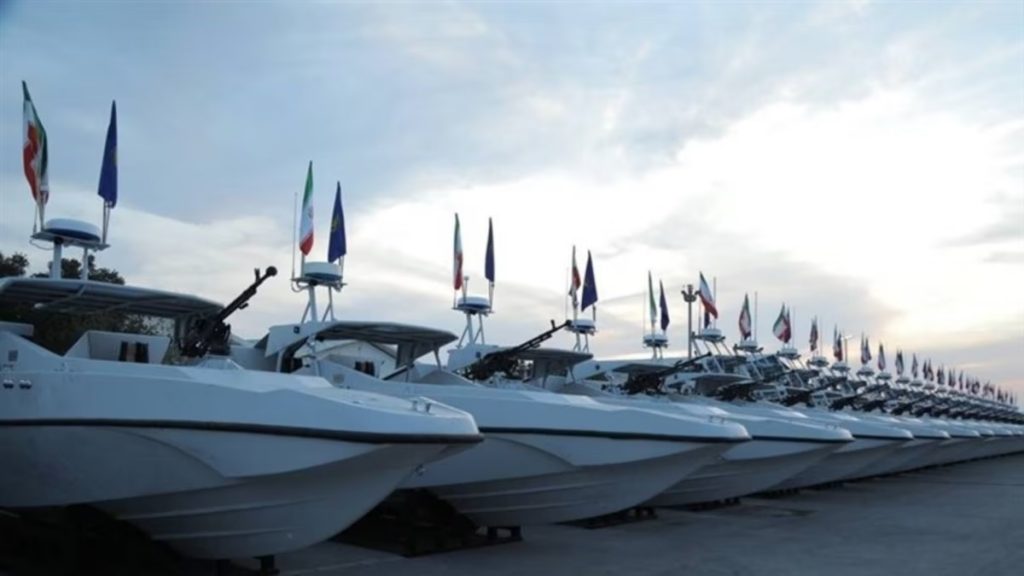
Plant the Tree of Friendship
The editorial of Mardomsalari stresses that the recent development in Saudi Arabia-Iran relations is a good opportunity for the Iranian government to start having friendly relations with this neighboring country.
In recent days, the news of an agreement between Iran and Saudi Arabia through the mediation of China received extensive coverage in domestic and international media outlets. Iran and Saudi Arabia have agreed to resume their diplomatic relations and reopen their embassies in the next two months.
This surprising incident made the headlines because it was a non-Islamic, communist country that brought the two Islamic neighbors together trying to foster friendship and understanding between them.
On the other hand, the formation of new alliances and multilateral relations between Asian countries – as well as the possibility of the expansion of these relations to military-economic alliances – has worried some regional countries that are in line with the West. But the White House announced that it was aware of the talks between Iran and Saudi Arabia, welcoming any efforts for ending the war in Yemen and de-escalating tensions in the Middle East.
Inside Iran, what is surprising is that this agreement has been reached during Ebrahim Raisi’s government and at the juncture when the “hardline principlists” have control over all branches of government.
Those who during Hassan Rouhani’s government organized forces to scale the walls of the Saudi embassy and later boasted about it in their newspapers are now saying that the agreement between Iran and Saudi Arabia is a severe blow to the United States and Israel.
Iranian society and the global community, nonetheless, do not think that these Iranian “hardliners” are into talks and dialogue, knowing that these “hardline” groups are after isolation in foreign policy, making threats against other countries and relying on military power in their confrontation with others, particularly some Gulf countries.
Whatever the reason may be, Iranian “hardliners” have reached an agreement over resuming relations with Saudi Arabia, and this must be taken as a good sign. Agreement and negotiations are always favored over the use of force and the public and political elites on both sides must welcome reaching agreement and building friendship with neighboring countries.
The other point in this agreement is the emphasis on this brilliant idea in foreign policy: there are no permanent friends or enemies in foreign policy and the door to dialogue and agreement is always open.
Now, if the rulers make a minimal change in their foreign policy and move from authoritarian and military discourse toward economic development and dialogue with others, they will certainly see the results in the country’s economy in the short run. This will increase public trust and people will move away from poverty, misery and destruction.
Nations are keen on friendship, dialogue and interaction with other communities. War, poverty and misery are created by governments. It is absolutely necessary for Iran today to get rid of prejudices, create understanding with the international community and plant the tree of friendship with others.
Why Do You Insist on Telling People How to Feel?
The editorial of Jahan Sanat underscores that Saudi Arabia and Iran resuming their relations has made the Iranian people happy, stating that those with authoritarian mindsets in Iran are not allowed to disappoint the people by telling them why – and to what extent – they must be happy about this issue.
Some people think that they are elected and authorized by Iranian citizens to tell everybody what they should think and how they should feel.
The most recent case was the renewal of the relationship between Iran and Saudi Arabia. For whatever reason, Iranian authorities have concluded that they must restore their relations with Saudi Arabia and have accordingly reached an agreement with this country through mediation of Iraq, Oman, Russia, and mainly China. Then, it was announced that Iran and Saudi Arabia have agreed to resume their political relations and reopen their embassies.
As a matter of fact, this is a huge event and after years of not having any good news in foreign policy, this has surprised Iranians and made them happy. According to the news, political figures of the United States, France, the UK, Turkey, Bahrain, UAE and some other countries have expressed happiness about Tehran and Riyadh resuming their relations.
The United States announced that it was aware of the talks, while Russia claims being behind this initiative. Iranian politicians say that Iranians are happy because of this development, urging that Iran has taken a big step and can have peace on its agenda.
Given the current formation of power in Iran’s political system, this demand obviously does not seem viable. Meanwhile, some believe that restoring relations with Saudi Arabia indicates the beginning of a new political era in Iran.
Let us suppose this is true. Is that the reason why people are happy? Now, do some people with authoritarian mindsets want to even tell people how, why and to what extent they are allowed to be happy? No one is allowed to tell the Iranian people how they should feel.
Riyadh Can Be a Friend for Trade With Iran
The editorial of Eghtesad Pooya argues that the recent agreement signed between Saudi Arabia and Iran can have a positive impact on Iran’s already deteriorating economy, if Iran can resume its trade with this country.
It has been seven years since the first talks between Iran and Saudi Arabia were held. But it was only recently that an agreement was concluded between these countries.
The agreement between Iran and Saudi Arabia will not be similar to agreements with China and Russia, because this agreement has nothing to do with the sanctions. But it is a way for sidestepping the sanctions, with Iran and Saudi Arabia resuming imports and exports. On the other hand, the embassies of both countries are going to reopen.
The negotiations between Iran and Saudi Arabia which started seven years ago finally came to fruition only recently with the support and mediation of China. Both countries agreed to respect the sovereignty of each and not interfere in each other’s affairs.
Accordingly, this is a trilateral agreement between Iran, China and Saudi Arabia aiming at regional and global security. What is more, this agreement can create a way for Iran’s trade with Saudi Arabia. We must wait and see if this agreement can make the sanctions against Iran ineffective.
Crisis in Decision Making in Iran’s Economy
The editorial of Eskenas emphasizes that the Iranian government is not capable of dealing with the current economic crisis in the country.
As a result of skyrocketing forex prices and the increase in liquidity and inflation, Ebrahim Raisi’s government is now not capable of fulfilling its promises to its supporters. It seems as if Iran’s economy is in freefall.
Iran’s economy is corrupt and diseased, and reforming it with Raisi’s so-called “economic surgery” has backfired making people more discontent and distrustful. On the other hand, Raisi has shown no particular reaction to the current economic situation, as if he and his economic team are confident in what they are doing, even though it has put a lot of pressure on the people.
Raisi used to say that people’s living conditions would not be tied to the country’s foreign policy in his government. But now we see that even the news of the trip of the IAEA director general to Iran affects the price of forex in the Iranian market.
There are no signs of any wise measures taken in economic affairs. And that was expected to be so because those who are in charge of the economy in Raisi’s government are not qualified for running a normal economy, let alone an economy in crisis.
Iran’s economy is in freefall and the government is confused. It cannot fulfil its promises. Iran’s economy is under the impact of the sanctions in the short run, but the main problem is corruption which exists in the country. Even the lifting of sanctions cannot be considered as the panacea for the economic problems in Iran.
Lifting the sanctions might be effective, but it will be so only in the short run.
There has been no decrease in liquidity and prices have not stabilized. This process will continue and any promising news in foreign policy will decrease prices only for a short time.

Prominent Artists Banned From Any Kind of Property Transactions for Supporting the People’s Protests

Iran’s judiciary has banned dozens of well-known filmmakers, musicians, singers and actors from undertaking property transactions, according to a leaked document recently published by BBC Persian.
The document contains a list of 53 artists who had stood with the people who demonstrated against the Iranian establishment in the wake of the killing in custody of Mahsa Amini nearly six months ago. Oscar winning director Asghar Farhadi and the internationally acclaimed actress Taraneh Alidousti are among those mentioned in the list which had been sent to all organizations for the registration of deeds and properties in Iran in October 2022.
Taraneh Alidousti was arrested and kept in solitary confinement for three weeks after she backed Iran’s “Woman, Life, Freedom” movement by publishing her photo without her hijab on social media.
Filmmaker Farhadi saluted the Iranian “people, younger generation, women and men who have taken to the streets, trying to take their destiny in their own hands” in a speech.
Other artists targeted by the judiciary include Grammy award winner Kayhan Kalhor, an Iranian-Kurdish kamancheh and setar player and vocal composer. During one of his performances, Kalhor wore a t-shirt emblazoned with the slogan “Woman, Life, Freedom.”
Mehdi Yarahi, whose name tops the list, is an Ahvazi-Arab singer and activist who was taken into custody and banned from performing several times for his rebellious lyrics. In reaction to the document banning him from property transactions, Yarahi tweeted, “I’m satisfied with my crime.”
Yahrahi’s latest music video vocalizes his endorsement of the people’s protest movement with poignant lyrics:
“Sing! So that the city becomes an anthem for women,
So that this homeland becomes the homeland.”
Results of Raisi’s Economic Promises: More Inflation and Poverty

As the Iranian new year (starting March 21) approaches, the Iranian people’s economic conditions have worsened and they have experienced nothing but misery and poverty.
At the beginning of the year, Iranian President Ebrahim Raisi emphatically promised that there would be an improvement in economic indicators and conditions. He pledged that after six months of his government taking office, people would witness the achievements of his cabinet.
Raisi’s economic team started his so-called “economic surgery” with eliminating subsidies on essential goods. In the second half of the year, when the government announced its plan for selling government properties, it signaled the failure of the government’s economic policies in closing the budget deficit.
Statistics show that Iran’s economy is in crisis. According to Iran’s Statistical Center, point-by-point inflation last month was 53.5 percent nationwide, which was unprecedent in Iran after World War II.
What makes this number more troubling is economists’ prediction regarding a super-inflation in spring, which will undoubtedly put more pressure on the Iranian people.
The significant increase in expenses because of the spike in forex prices and the shutting down of certain businesses due to the shortage of energy and filtering the internet are other factors accounting for the severe drop in economic activity.
Now, as the Iranian new year is right around the corner, Iranians are reportedly “unwilling” to make any purchases because of high inflation, high prices, the drop in purchasing power and conditions in the market.
Unlike the past when people used to spend money freely to celebrate the new year, this year they cannot afford to buy the usual things for themselves and their families.
The markets are reportedly crowded with people as usual, but Iranians cannot buy what they desire.
A citizen told ILNA news agency that he cannot afford to buy a new set of clothes for his child, let alone buying other things.
This is going to be the second year under Ebrahim Raisi, but the economic frustration has left people joyless and hopeless, while economic estimates for next year have created more despair among people.
INSTEX Financial Mechanism to Be Liquidated

Iran’s 12th government headed by former President Hassan Rouhani advertised a lot when INSTEX – a financial mechanism to facilitate financial transactions of European countries with Iran – was set up, calling it the biggest financial mechanism against US sanctions. With the passage of time, there were complaints about this mechanism not being used and now European countries have announced dismantling INSTEX forever.
European countries have reportedly stated that they will shut down INSTEX which was created in 2019 for countering US sanctions and facilitating trade with Iran.
Accordingly, the foreign ministers of France and Germany have announced that the countries participating in INSTEX including Belgium, Germany, Finland, Denmark, France, the Netherlands, Norway, Spain, Sweden and the UK have reached the conclusion that as this mechanism is not used, there is no reason for its existence.
INSTEX was considered a big achievement and even former Foreign Minister Mohammad Javad Zarif went so far as calling it a rift between Europe and the United States. He underscored its strategic value, saying it indicated “the United States’ closest allies are distancing themselves.”
As the INSTEX project had no standing in Ebrahim Raisi’s government, Germany, France and the UK have decided to liquidate it – in line with their harsh stance towards the crackdown on the recent nationwide protests in Iran as well as Iran selling drones to Russia to be used in its invasion of Ukraine.
In reaction to dismantling INSTEX, Iran has stated that it has never attached itself to this financial mechanism, blaming Europe for failing to launch INSTEX effectively and not taking the necessary measures for activating it in the framework of Europe’s obligations.
INSTEX was supposed to facilitate transactions between European companies and Iran by using currencies other than dollars and outside the framework of the US sanctions against Tehran.
According to several European countries, Iran approved only one transaction, then blocked all other proposed transactions.
IRGC Claims Equipping Boats With Missile Launcher

IRGC Navy Commander Alireza Tangsiri says a number of the IRGC’s boats that had rocket launchers before are now equipped with missile launchers with a range of 10 kilometers to 180 kilometers.
According to Tangsiri, 99 boats have been armed with missile launchers. Stating that an ocean-going battleship called Shahid Mahdavi has recently been added to the IRGC’s naval fleet, Tangsiri stressed that this heavy vessel makes it possible for the IRGC to undertake missions in distant waters.
So far, the IRGC has been in possession of lightweight fast boats, and according to the US Maritime Institute, for years the IRGC has been pursuing an orthodox naval force along with Iran’s navy.
Tangsiri talks of the IRGC’s missions in distant waters, while their missions were only limited to IRGC naval forces patrolling the Gulf region and the Iranian army’s navy used to cover the waters in the Sea of Oman and beyond.
Recently, two Iranian naval ships passed through the Panama Canal anchoring on the Brazilian coast, which provoked strong reactions from US and Israeli officials.
The IRGC is under international pressure these days for its cooperation with Russia in invading Ukraine, and even the European Parliament ratified a draft bill for designating the IRGC which was met with strong condemnation by IRGC officials who made threats against Europe.
